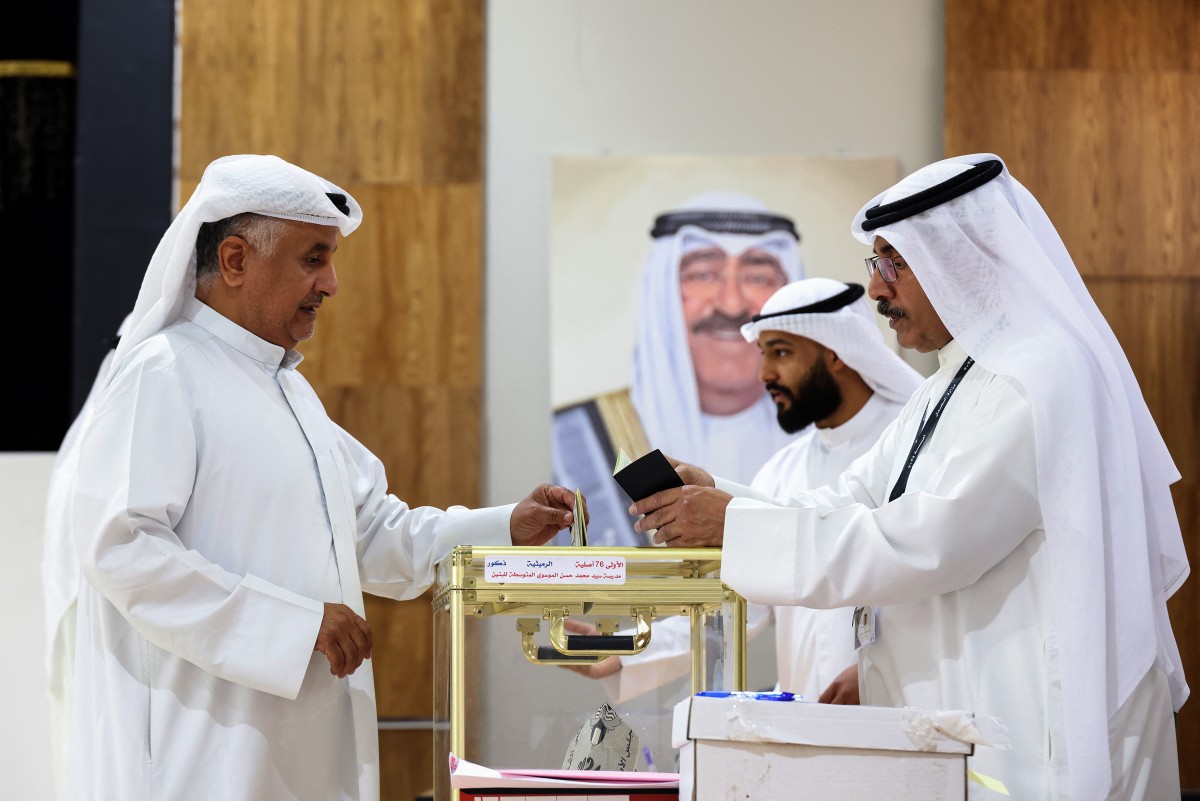Kuwait City, Kuwait – Opposition lawmakers maintained a majority in Kuwait’s parliament, results showed Friday, after the Gulf state’s third parliamentary vote in as many years held just months into the new emir’s reign.
Opposition candidates won 29 seats in the 50-member assembly, according to results carried by the official KUNA news agency, matching the outcome of last year’s election.
The make-up of the new parliament is very similar to the outgoing one, with all but 11 lawmakers retaining their seats.
“No radical change was expected in the results,” said Bader al-Saif, assistant professor of history at Kuwait University.
“This is one of the lowest change ratios,” he told AFP.
Parliamentary elections have become an annual occurrence for the OPEC member, which has seven percent of the world’s oil reserves and the monarchical Gulf’s most powerful elected assembly.
However, clashes between the national assembly and the royal-appointed cabinet have caused constant stalemate, delaying much-needed reforms.
With little change to the parliamentary line-up, the political impasse is expected to continue, according to Saif.
“A new showdown is in the making,” he said, adding that “some of the new faces are quite outspoken”.
Thursday’s election was the first to be held under the new emir, Sheikh Meshal al-Ahmad al-Sabah.
Turnout was around 62 percent after polling stations closed at midnight, the information ministry said.
Sheikh Meshal, formerly the world’s oldest crown prince, came to power aged 83 in December after the death of his half-brother and predecessor, Sheikh Nawaf.
He took aim at both the cabinet and parliament in his inaugural speech to the assembly, before announcing an era of “reform” as he picked Kuwait’s first foreign minister from outside the ruling family.
But in February, the national assembly was dissolved once again, a royal decree accusing it of constitutional violations including “offensive and inappropriate language”, after a lawmaker responded to the emir’s criticism.
Thursday’s election — the third since 2022 and the fourth in five years — was different in that the new parliament will be tasked with approving Sheikh Meshal’s choice of crown prince, Kuwait’s future emir.
If the assembly takes the unprecedented step of rejecting his heir, Sheikh Meshal will submit three candidates for parliamentarians to choose from.








